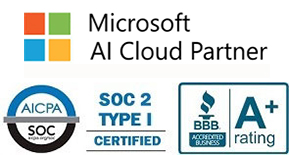
The financial industry's embrace of digital technologies has heightened the imperative for stringent cybersecurity defenses. Digitalization offers profound benefits in efficiency and accessibility but also exposes financial institutions to heightened risks, underscoring the necessity of safeguarding critical data and monetary assets. Amidst an evolving landscape of cyber threats, a set of pervasive yet erroneous beliefs has taken hold, potentially compromising the security posture of these organizations and leading to costly ramifications.
In the recent past, the cost of a data breach within the financial sector has hovered around 5.9 million U.S. dollars globally—a marginal decline from the previous year but a figure still signaling the substantial impact of cybersecurity incidents. With stakes this high, it's crucial to confront and correct the fallacies surrounding cybersecurity measures to ensure that financial entities are not left defenseless against the sophisticated tactics of cyber adversaries.
Strengthening Defenses in Financial Cybersecurity
Financial organizations must defend against a spectrum of cyber threats in an evolving digital environment. Protecting clients' financial and personal information, alongside internal financial transactions, is critical for maintaining trust and operational integrity. Here's how effective cybersecurity can be approached:
- Risk Assessment: Regularly evaluating potential cyber threats to develop a robust risk management strategy.
- Layered Security Measures: Implementing a mix of defenses such as encryption, firewalls, and anti-malware solutions.
- Continuous Monitoring: Using real-time threat intelligence to detect and respond to threats promptly.
- Regulatory Compliance: Adhering to financial industry regulations to strengthen security postures.
- Collaboration: Working alongside regulatory bodies, financial peers, and security specialists to enhance cyber defenses.
- Investment: Allocating appropriate budgets to cybersecurity functions for continued resilience.
- Employee Awareness: Training staff to recognize and prevent cyber risks.
- Incident Response: Establishing and testing incident response plans for quick action in case of a breach.
Taking a strategic and proactive approach to cybersecurity ensures financial services firms can uphold the security of sensitive data and IT infrastructure against the backdrop of a challenging threat landscape.
Seven Top Misconceptions About Cybersecurity in Finance
Cybersecurity: A Shared Organizational Duty
Cybersecurity extends beyond the realm of IT departments and must be embraced by the entire organization. Every employee, from the executives to the front-line staff, has a role to play in protecting sensitive information. A robust cybersecurity culture , underpinned by regular awareness training, ensures that everyone is equipped to contribute to the security posture of the organization, thereby minimizing risk and enhancing defense against cyber incursions.
Threats to Financial Entities: Size Doesn't Matter
Contrary to popular belief, cyber threats do not exclusively target large corporations. In reality, financial organizations of all sizes are potential victims. Cybercriminals often view smaller businesses as low-hanging fruit due to potentially less stringent security practices. It is imperative for every financial institution to take cybersecurity seriously and enforce strong safeguards to protect against unauthorized access and data breaches.
Data Security in the Cloud: A Shared Responsibility
Storing data in the cloud offers many advantages but does not absolve organizations from the duty to protect it. Even with security measures offered by cloud providers, the primary responsibility for securing data falls on the financial service organizations. By implementing robust access management, encryption, and vigilant monitoring, these organizations can greatly enhance the security of their cloud-stored data.
Well-Informed Employees: Only Part of the Solution
Having knowledgeable employees is important, but it is not a foolproof defense against cybercrime. Effective cybersecurity requires continuous evolution of strategies to counteract the increasingly sophisticated tactics of threat actors. Financial institutions need to employ thorough security measures that encompass not just education but also technology and proactive threat mitigation to ensure the safety of their digital assets.
The Myth of Technological Invulnerability
While integrating state-of-the-art technology can strengthen an organization's cybersecurity arsenal, it does not render it impervious to attacks. Cybercriminals continually refine their techniques, which means financial services providers must couple technological investments with comprehensive security approaches. Regular updates, employee training, and continual system monitoring form the backbone of a truly resilient cybersecurity strategy.
Digital Identity Schemes: One Piece of the Cybersecurity Puzzle
The implementation of a national digital identity scheme is not a catch-all remedy. It should be integrated as part of a broader, multifaceted security strategy that encompasses rigorous cybersecurity measures, consistent risk assessments, and a well-informed workforce. By employing a well-rounded approach, financial institutions can better shield themselves from the wide array of cyber threats they face.
Cybersecurity Investment: More Than Just Financial Commitment
Merely increasing financial investment in cybersecurity does not equate to greater security. The effective protection of an organization's digital information requires a judicious blend of investment in technology, refinement of processes, and education of personnel. By carefully allocating resources across the spectrum of cybersecurity demands, financial services institutions can construct a more durable defensive infrastructure against cyber incidents.
The Bottom Line
Financial institutions are acknowledging the critical need to debunk widespread cybersecurity misconceptions to create a secure and robust environment. By prioritizing security measures in their strategic plans, these institutions demonstrate their commitment to protecting their interests and those of their clients. Adopting innovative strategies and proven safeguards allows these entities to address the nuances of the digital domain effectively, ensuring capital markets and business priorities advance without being compromised by cyber threats.
About Us:
- 150+ 5-Star Google Rated IT Firm
- Microsoft Certified Cloud AI Partner
- SOC II Certified Managed Service Provider
- Better Business Bureau A+ Rated






